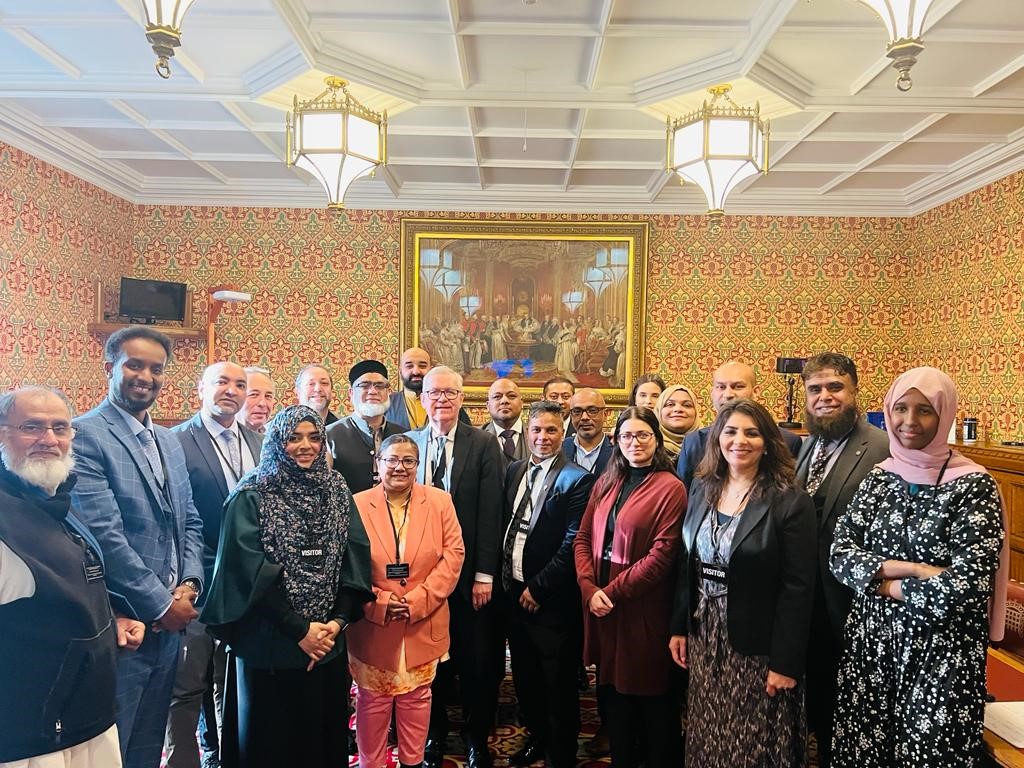
Community leaders are invited to join a House of Lords event tackling single-use plastic during Ramadan – with the potential to save over 500 tonnes of waste each year.
The Plastic Free Ramadan initiative works with representatives from mosques across the country to find sustainable ways to serve food and drink while breaking fast.
It was launched by Projects Against Plastic (PAP) , a charity tackling single-use plastic in the hospitality sector, back in 2019.
Since then, the UK government has announced new far-reaching single-use plastic bans.
And PAP is working in partnership with the House of Lords and Bristol Muslim Strategic Leadership Group (BMSLG), to raise awareness and offer practical solutions.

PAP charity founder Naseem Talukdar said: “Half of all plastics are used just once, often for only a few moments. Small behaviour changes can make a massive impact.
“We are keen to work with community champions from across the UK to take action and protect our environment for future generations.”
House of Lords event
Plastic Free Ramadan started as a pilot scheme – with a water fountain and a dishwasher installed at a mosque in Naseem’s home community of Fishponds -reducing waste by 70 per cent.
Mosques in the South West, South East, North West and the Midlands have since responded to the campaign.
Organisers are now hosting a Plastic Free Ramadan conference and workshop at the House of Lords on February 11 to help representatives become ‘a community hub for sustainability’.
Lord Syed Kamall, a Member of the UK House of Lords and a professor of politics and international relations at St Mary’s University, Twickenham, said: ““I am delighted to host this event to showcase how mosques can reduce the use of single use plastics and reduce waste during the holy month of Ramadan and hopefully all year around.”
500 tonnes of waste reduction
There are an estimated 500 mosques in the UK and each one can use up to 3,000 water bottles and 2,000 plastic plates and cutlery sets during Ramadan.
The scheme could lead to saving a tonne per mosque – the equivalent weight of nearly 70 elephants.
A ban on some single-use plastics came into force in October 2023 and was updated the following year – banning and restricting certain items in England.

Sheila El Dieb, environmental task group chair of BMSLG, said: “By joining once again with this charity partnership, we believe that, not only are we giving the mosques their natural leadership roles at a critical period of the year, but giving them the format, with which to inform their communities regarding the recent legislation updated in October 2024.
“Ramadan is a time when Muslims are reconsidering their individual place in the world along with their responsibility to the planet, each other and our fellow global inhabitants.
“No step is too small to seek to find ecological ways of making our living sustainable; no person is unimportant in this journey.”
Naseem, who is also director for social responsibility and sustainability at UK Curry Connect (UKCC) campaign group, which works for betterment of the catering industry, believes reducing waste in mosques would significantly benefit the environment.
He said: “If everyone gets involved, we could save around a tonne of waste per mosque. This would benefit those communities directly and the country in general.”
He is encouraging leaders to install water refill stations and said the team would help them to make the transition – with communication and education materials – to reduce waste.
- The Plastic Free Ramadan event will take place on Tuesday, February 11, from 6pm to 8pm. Register at pap.org.uk



